- Home
- John Jakes
Heaven and Hell: The North and South Trilogy Page 31
Heaven and Hell: The North and South Trilogy Read online
Page 31
He gave each side of his mustache a short, neat stroke with his index finger to put a period after the whole business, but added: “The less gov’ment blue I see in this outfit, the happier I’ll be.”
Sometimes when Charles had a spare hour, he rode to Leavenworth City. The Prairie Dog Saloon on Main Street served forty-rod that was much better than the watery stuff in the officers’ bar at the sutler’s.
Heading for town one sunny Saturday, he heard gunfire. He soon came upon an expensively dressed civilian who’d picketed his horse by the road and stepped away to a safe distance for some target practice. Charles reined in and watched as the stranger blew down a row of twelve bottles with continual fire from a pair of .44-caliber double-action Colts.
As echoes of the shots reverberated, Charles called, “That’s fine shooting.”
The marksman ambled over. He was about Charles’s age and had long hair and a mustache resembling Custer’s. A jutting upper lip somewhat marred his appearance. He wore a fawn claw-hammer coat, green silk waistcoat, and costly tooled boots.
“Thanks,” he said. “Do I note a trace of the South in your speech, sir?”
The question had an edge. Charles said, “The border.”
“Ah, a Union loyalist. Good. I’m from Troy Grove, Illinois. La Salle County. Abolitionist territory.” He offered his hand and Charles leaned down to shake it. “Right now I’m earning the handsome sum of sixty a month riding dispatch for the Army. I’m hoping to sign on to scout for General Hancock this spring.”
“You practice a lot, do you?”
“Three, four hours a day. There’s no magic to killing somebody who’s out to kill you first. It’s mostly accuracy, plus a few tricks. Always go for the head, never the chest. A man with a fatal wound in the chest can keep firing long enough to finish you.”
“I’ll remember. Well, keep it up, Mr.—”
“Jim,” the stranger said. “Just Jim.”
At the Prairie Dog, Charles mentioned the dandified stranger. The barkeep paled. “Oh, God. You didn’t insult him, did you? No, I guess not. You wouldn’t be here.”
“What do you mean? He seemed a polite sort—”
“Call him Duck Bill and see how polite he is. One man called him that and he blew him down. That shootist is J.B. Hickok.”
Charles knew the name. Everybody knew the name of the feared killer. “He said he’s riding dispatch for the Army.”
“Yeh, him and some braggy kid named Will Cody.” Charles let out a low whistle. He had exchanged pleasantries with one of the most dangerous men on the frontier. He was almost as surprised by the mention of Cody. Just as Dutch Henry Griffenstein had predicted, the young Kansan’s Golden Rule House hadn’t lasted.
In the wet, misty dark, Charles ran toward clustered lanterns, the tail of his nightshirt flapping out of his trousers. Hair in his face, sleep in his eyes, fear drying his mouth, he loped east from the arsenal storehouse to the group of provost’s men.
One had pounded on his door to wake him. No one could locate Grierson. The new adjutant, a recommissioned officer named Woodward, wasn’t scheduled to arrive till next week. Ike Barnes and Lovetta were taking a short holiday in St. Louis and Floyd Hook was down with winter influenza.
Sweating, his breath clouding, Charles reached the half-dozen men with lanterns standing some distance from the timber piers of the rail bridge over the Missouri. The metal of their revolvers and carbines gleamed.
“Sir, the darky’s one of yours,” a corporal said after a slovenly salute. “He won’t surrender. We’ll have to shoot him.”
At the dim edge of the light, squatting behind a pier so that only a white eye and a sliver of his black face showed, was one of the new recruits, Shem Wallis.
“Let me talk to him, Corporal.”
“Sir, white or nigger, if a sojer takes the Grand Bounce and resists when he’s caught, we got orders to—”
“I said I’ll talk to him.” Charles shoved the corporal’s carbine down and walked away from the muttering men.
The closer he got to Wallis, the more he saw of him. That included black fingers tightened around an Allin Conversion, one of the pieces retooled in 1865 by the Springfield Armory and foisted on the Army. An old-fashioned single-shot gun, but its fifty-five-grain charge could still put a man away.
Wallis acted determined, too. “Lieutenant, you stay there. Like I told those white boys, first one who tries to jump me goes to hell.”
Charles’s gut hurt. So did his head. “Shem, listen. You shouldn’t have clubbed that sentry and tried to desert. But it’ll be worse if—”
“I joined up to be proud of what I did!” Wallis yelled. “I didn’t join up to kneel down again like a nigger slave with a brush in my hand. I spent my whole damn Sat’day whitewashing some officer’s picket fence, and then he come out and inspected and said a jackass could do better.”
Charles took a step, another. His breath ghosted around him. “That kind of duty’s one of the bad things about the Army, Shem. I thought I explained that.”
“You did. I just won’t do it no more.”
Six feet from the pier, still walking, Charles held out his hand. “Give me the piece. I know what’s ragging you. Too much winter. Everybody feels it.”
The old Springfield steadied, pointed at his chest. “I kill you, Lieutenant.”
Charles stopped a yard from the pier. “All right, that will take care of one round. You haven’t any more. Those boys behind me will finish you. Give up, Shem. You’ll spend a while in the guardhouse, but it’s better than going to the cemetery. Then you’ll come back where you belong. You’ve got the makings of a good soldier. I mean it. You’re a good man.”
Hand held out, he resumed his slow walk forward. Wallis jammed the Springfield against his shoulder. Sighted.
Charles watched the muzzle opening grow larger as he walked.
Larger.
And—
Tension in Wallis’s upper body indicated a move. Charles shifted his weight and crouched, knowing he was too late to dodge the bullet.
The Springfield dropped. With a forlorn moan, Wallis covered both eyes. Then he straightened up, stepped from behind the pier, and raised his hands. Charles saw some whitewash left between his fingers.
Hancock did announce his intention to take the field as soon as the weather improved. One night in the last week of February, he told an assembly of post officers that his soldiers from Leavenworth would be augmented by men from A. J. Smith’s Seventh Cavalry. This combined force would strike out from Fort Riley for Indian country.
“Some of you gentlemen will accompany me. Others will remain here. All of you should be clear about the purpose of the expedition, however. I am under orders from General Sherman to overawe the Indians, and meet with the important chiefs to tell them they must stay away from the rail and wagon routes this summer. If their response is defiance, a warlike attitude, then we’ll give them war. No insolence will be tolerated. That is now government policy.”
In his next letter to Willa, Charles said nothing about government policy. He suspected she’d hear of it soon enough.
“Sit down, Private,” Charles said to Potiphar Williams after the exchange of salutes. Suspicious, the ex-cook took the visitor’s chair.
“C Company needs a first sergeant. Lieutenant Hook and I have campaigned for you, Captain Barnes agrees, and I’m happy to say Colonel Grierson has accepted our recommendation. You get the job, not only because you can read and write, but because you’ve proved yourself a good soldier.”
Williams’s flash of pride was quickly replaced by the old, barely veiled hostility. “Sir, I ’preciate the offer, but I can’t take it.”
“Don’t be so damned stiff-necked. I know you don’t like me. It makes no difference. In the war I served with plenty of men I didn’t like.” Williams cleared his throat. Charles blinked. “Wait. Is it just me, or is there something else?”
“It’s—” Williams nearly strangled over it. �
�Seeing.”
“What?”
Williams sagged. “My eyes are bad. I can manage fine in shooting at a rifle target. I can read the letter on the guidon when it’s a good way off. Close up, though—well, one reason I left the hotel kitchen was because I couldn’t see to carve and chop. Cutting carrots or beans, I had a hell of a time.” He showed a long, pale knife scar where his thumb and index finger met. Charles had never noticed it.
“There’s an easy remedy, Williams. Let the surgeon test you for spectacles.”
Another fidgety silence. “Uh, sir—I can’t afford ’em. I send most all my pay to my four brothers and sisters in Pittsburgh.”
“I’ll loan you the money for God’s sake, and don’t argue.”
After long and careful scrutiny of Charles, Williams asked, “The white officers, they really want me for first sergeant?”
“They do.”
“You, too?”
“It was unanimous.”
Williams glanced away. “You not so bad as I thought. What you did to help Shem Wallis, that was decent. I’d repay a loan soon as I could.”
“Fine. One small warning. You’ll be nicknamed Star Gazer or Star Eyes. Every bluebel—uh, trooper with glasses is Star Gazer or Star Eyes.”
Williams thought about that. “Well, guess it’d be better than the nickname I got.” Charles’s eyebrow hooked up. “From Potiphar the boys got Piss Pot.”
Charles laughed. So did Williams. “That’s a definite improvement. Congratulations.” Charles put his hand out. “Sergeant.”
Williams pursed his lips. He studied the white palm and fingers, then gave a little nod, and shook.
It was March 1, 1867. Dignified and handsome, General Winfield Scott Hancock left Fort Leavenworth.
It was a wet, bitter morning. Charles stood among cheering soldiers, wives, and camp followers watching the departure. The post band played all the old favorites including that most trite yet most affecting of marches, “The Girl I Left Behind Me.”
National and divisional and departmental colors passed. Companies of infantry plodded forward. Horse-drawn gun carriages bore the light and dependable twelve-pound mountain howitzers. The towering canvas tops of supply wagons sailed slowly by like schooners.
The column was not all Army blue. Bland-faced Osage and Delaware trackers mixed with a few civilians, including Mr. Hickok, who was in tight buckskin breeches and garish orange Zouave jacket. His twin ivory-handled revolvers were prominently displayed. Hickok’s mare, Black Nell, stepped along smartly; her rider saluted the crowd with sweeps of his hat. When he spied Charles, he hailed him cordially. The troopers of C Company looked at Charles as if he’d suddenly acquired a holy aura.
A lurching ambulance carried Mr. Davis, who wrote for Harper’s Monthly, and Mr. Henry Stanley, who represented the New York Herald and other papers. Generals Hancock and Sherman wanted a good press.
The old man squirted spit between his teeth and said to Charles, “Know what’s in some of those wagons? Pontoon boats, for God’s sake.”
“Pontoon boats? What for?”
“Why, fordin’ rivers. If Hancock spies some Indians and there’s to be a scrape, y’see, the Indians are supposed to wait half the day so’s Hancock can lay down his pontoon boats and cross over and fight.” Another squirt of spit. “Shows you how much old Superb knows about war on the Plains. It don’t bode well, Charlie.”
“I still wish we were going.”
“Want some red scalps, do you?”
“Yes.”
Ike Barnes studied his lieutenant’s face and didn’t care for the cold, stark look on it. “You’ll get your chance,” he said, not hiding his disapproval.
___________
PULASKI CITIZEN
F. O. MCCORD, Local Editor
Pulaski, Tenn.
FRIDAY MORNING, March 29, 1867
_____
WHAT DOES IT MEAN?—The following mysterious “Take Notice” was found under our door early yesterday morning, having doubtless been slipped there the night previous. Will anyone venture to tell us, what it means, if it means anything at all? What is a “Kuklux Klan,” and who is this “Grand Cyclops” that issues his mysterious and imperative orders? Can any one give us a light on this subject? Here is the order:
“TAKE NOTICE—The Kuklux Klan will assemble at their usual place of rendezvous, ‘The Den,’ on Tuesday night next, exactly at the hour of midnight, in costume and bearing the arms of the Klan.
“By order of the Grand Cyclops.
“G. T.”
First mention of the Klan in the U. S. press
28
CHARLES WAS OFFICER OF the day when another recruit arrived. He seemed unremarkable at first, a stout, round-faced black man in his late twenties carrying all his belongings tied up in a bandanna. A black silk handkerchief overflowed the breast pocket of his old frock coat, which had a hole in one elbow. The toe of his left shoe lacked a top.
“Stand at attention while I take some information.” Charles believed in breaking recruits in quickly. He examined the man’s papers. “Your name’s Magee?”
“Yes, sir.” The recruit grinned, the widest, sunniest mouthful of teeth Charles had ever seen in a human being. The infectious smile tickled him out of the gloom caused by the morning rain. Life might have robbed the man in some other respects, but those teeth were perfect.
“Wendell Phillips Magee,” he added. “Mama named me for—”
“I know,” Charles interrupted. “The abolitionist.” He consulted the papers again. “You enlisted in Chicago.” Illinois must be a dull state. People kept leaving; people like Hickok and a couple of other gun artists named Earp and Masterson whom Floyd Hook had mentioned to him. “What did you do in Chicago, Magee?”
“Saloon porter. Swamped floors. Emptied spittoons.” He didn’t seem bitter, only factual. “Took my share of hard knocks from customers ’cause I’m a nigger. When my Aunt Flomella died—she was Mama’s sister, my only kin—a piece in a newspaper caught my eye.”
“You read, do you?”
“Yes, sir, General.”
“I’m a lieutenant.”
“Yes, sir, sorry. I write, too. And I can do sums.” The recruit had a jolly, breezy air, undaunted by criticism. His fast talk and bright smile were probably defenses against the abuse he’d mentioned. “The newspaper piece said, young men of color, put on Army blue—” Magee startled Charles by snatching the black hanky from his pocket. He pushed the silk into his left fist with his right index finger. “So I said, Magee, that sounds good, don’t it?” Quickly, the silk disappeared. “Change your whole life. Black to blue.” He picked at the other side of his fist and pulled out a long twist of silk. Bright blue.
Charles laughed. Delighted, Magee waved the hanky up and down with his right hand while displaying his pale left palm, empty. “Black to blue,” he repeated, grinning that wondrous grin. “Whole new life, and glad of it.” He pocketed the silk.
“Do you know more tricks like that?”
“Oh, yes, sir, General. I learned my first ones from a barkeep soon after I started work, ’round age nine. Picked up plenty more over the years. Coins, cards, cups, and balls. I read about tricks, too. They had conjurers back when knights rode around in armor, did you know that? The Chinee had ’em a couple thousand years ago. Sort of gives a man a sense of being part of a fine old family.” Another grin. “Know what I mean?”
Charles thought of Hickok and his pistols. He said, “You must practice a lot.”
“Every day. I get lots of good out of magic. I’d do tricks for some of those mean bast—gents who hung ’round the saloon and they’d tip me a coin or two, ’stead of kickin’ the shit out of me ’cause I’m colored.” Though the smile stayed fixed, a hurt revealed itself for a moment.
“Can you ride a horse?”
“Afraid not, General. But I’m going to learn. I’m mighty proud to be a U.S. soldier, and I mean to be a good one.”
“I expect you will be.
” Charles extended his hand for the customary greeting. “Welcome to the Tenth Cavalry, Magee.”
The regiment found the new man good company, a studious pupil at drill, and unfailingly entertaining. On Magee’s third day with the regiment, Grierson showed up for 9:00 P.M. tattoo and roll call at the barracks, solely to watch Magee perform. When the colonel asked for a trick, Magee produced a piece of string.
“Works better with rope, but who can afford rope on a porter’s pay?”
“You won’t afford it on a private’s pay either,” Sergeant Star Eyes Williams said. The circle of men laughed.
Magee looped the string in one hand and cut the midpoint of the loop with his pocket knife. He then put the pieces back together and tied the cut ends in a knot. He displayed the string full length, snapping out the ends over his head to show the knot in the middle. He wound the string round and round his left fist, tapped it, then snapped it out again. The string was unbroken, the knot gone.
Grierson applauded. “That’s very good, Private. How do you do it?”
“Why, General, if I told you that, they wouldn’t be calling me Magic Magee much longer, would they?”
“That’s already his nickname?” Floyd Hook whispered to Charles, who whispered back, “What else did you expect?”
Puddles of melted snow and an occasional balmy day promised the end of winter. The Tenth grew and continued to train. Barnes, Hook, and Charles drilled their troopers, broke up fights, staged night raids on barracks gambling games and confiscated the dice or decks of cards, wrote letters for the men, listened to romantic or family problems, and prayed for the day they’d ride west for field duty. C Company was nearly up to strength. Departure couldn’t come too soon for Charles.
Couriers brought reports of Hancock’s campaign to Department headquarters. Hancock had marched southwest to Fort Larned on the Pawnee Fork of the Arkansas and encamped there with fourteen hundred men from the Seventh Cavalry, Thirty-seventh Infantry, and Fourth Artillery. He sent Lieutenant Colonel Edward Wynkoop, former commander at Fort Lyon and now the Interior Department’s man in charge of the Southern Agency, to bring the Indians to hear his warning. These were Cheyennes and some Oglala Sioux living together in a big village thirty-five miles up the Pawnee Fork. The outcome of the parlay would be in the next reports.

 The Bastard
The Bastard The Furies
The Furies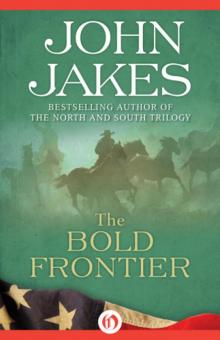 The Bold Frontier
The Bold Frontier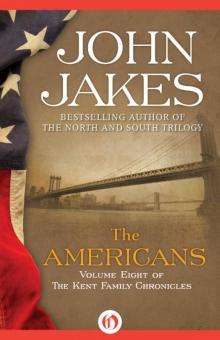 The Americans
The Americans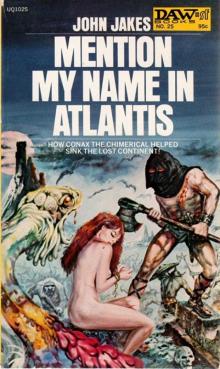 Mention My Name in Atlantis
Mention My Name in Atlantis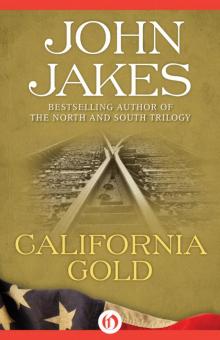 California Gold
California Gold North and South
North and South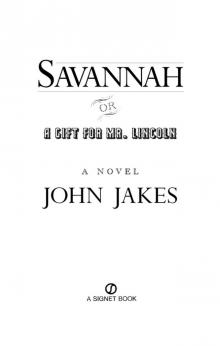 Savannah, or a Gift for Mr. Lincoln
Savannah, or a Gift for Mr. Lincoln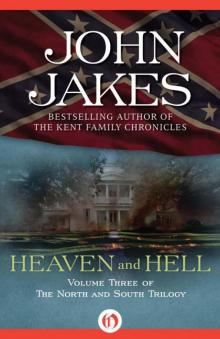 Heaven and Hell
Heaven and Hell Homeland
Homeland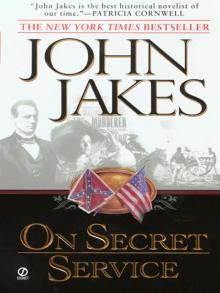 On Secret Service
On Secret Service The Lawless
The Lawless The Titans
The Titans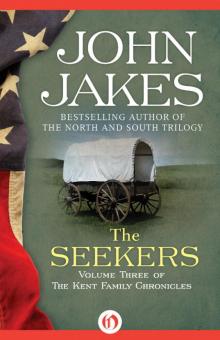 The Seekers
The Seekers Love and War
Love and War North and South: The North and South Trilogy (Book One)
North and South: The North and South Trilogy (Book One)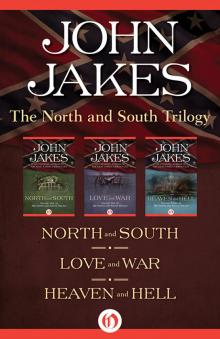 North and South Trilogy
North and South Trilogy Love and War: The North and South Trilogy
Love and War: The North and South Trilogy North and South: The North and South Trilogy
North and South: The North and South Trilogy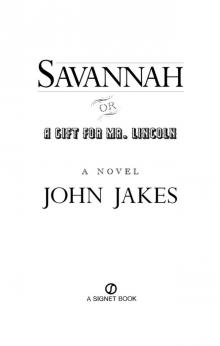 Savannah
Savannah Lawless
Lawless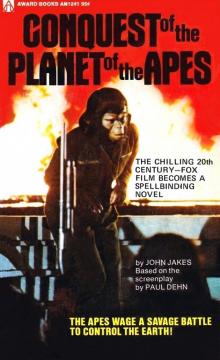 Conquest Of The Planet Of The Apes
Conquest Of The Planet Of The Apes Love and War: The North and South Trilogy (Book Two)
Love and War: The North and South Trilogy (Book Two) The Rebels: The Kent Family Chronicles
The Rebels: The Kent Family Chronicles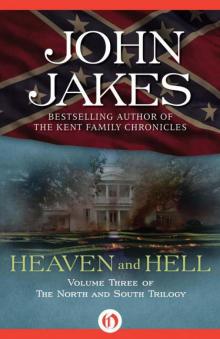 Heaven and Hell: The North and South Trilogy
Heaven and Hell: The North and South Trilogy Planet of the Apes Omnibus 2
Planet of the Apes Omnibus 2 The Bastard: The Kent Family Chronicles
The Bastard: The Kent Family Chronicles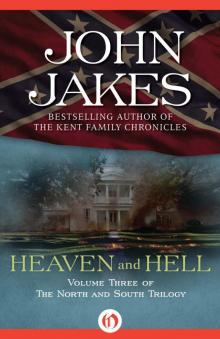 Heaven and Hell: The North and South Trilogy (Book Three)
Heaven and Hell: The North and South Trilogy (Book Three)